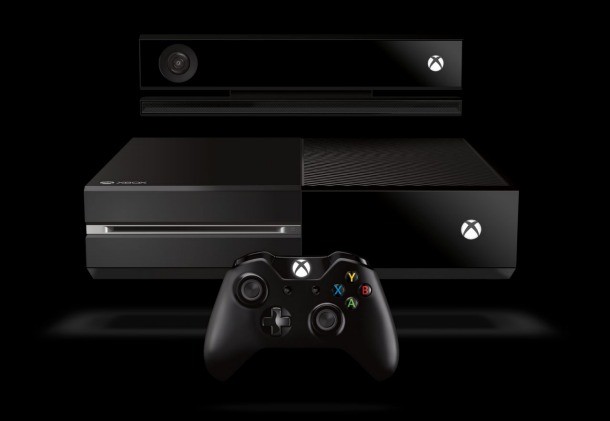Our extra-large special edition is here. Subscribe today and receive the 25% longer issue at no extra cost!
Analysis – Microsoft’s UK Price Drop And Titanfall Bundle Reveal The Road Ahead

It has been three months since the Xbox One was released in North America and 12 other territories. And while its still too early in the console life cycle to declare a winner, it’s relevant that Sony’s less expensive PlayStation 4 is outselling Microsoft’s Xbox One across the board, including in its two most important territories: North America and the UK.
Microsoft’s decision to lower the price of the Xbox One in the UK and bolster the install base worldwide with an aggressively priced Titanfall bundle offers clues about the console’s future. Lowering the price of a marquee product, especially so soon, is a choice that reveals much about strategy.
On Kinect
Products are traditionally marketed and sold using a number of variables: product, place, promotion, and price. Microsoft and Sony are even on “place,” as you can find both consoles in the same retailers (excluding first-party storefronts like the Microsoft Store).
The two differ on the other three elements. On product, Microsoft decided to bundle the Kinect with every Xbox One. Whether this was a good decision or not is something we won’t be able to determine until more developers begin integrating the feature into their software.
For Microsoft to continue to justify creating a universal install base for the Kinect, the device must be integrated into game experiences. I use my Kinect every day to turn my console on, access apps, and change television channels. I like having it, but I wouldn’t go so far as to say it’s a part of the experience I couldn’t live without.
The most important note about Kinect though, is what a price cut tells us. Price is often the last differentiating factor addressed because it comes with so much baggage. It’s easy to interpret a price drop as a sign of weakness. Beyond that though, this is Microsoft affirming its commitment to Kinect.
It would be easy for the company to cut the price across the board and lower its production costs by removing the Kinect from the box. The fact that Microsoft is sticking by the included peripheral, even in the face of worldwide adversity, means that you won’t see a SKU without it any time soon.
On other promotional vehicles
Microsoft knew that it had an uphill battle in Europe, which is why it struck a deal with EA. Every Day One edition console in that territory came with a copy of FIFA 14.
Granted, the converted prices are higher in those countries, and the added value was necessary. The UK price at launch was £429 ($712) and €500 ($687). However, I believe that not bundling a game in with the North American consoles was a sign of overconfidence.
North America is Microsoft’s home turf and up until right before the Xbox One launch, the company dominated here for 32 months straight. Sony came out swinging with two free PlayStation Plus games and a month of that service in every early PS4 box.
The PlayStation Plus / Xbox Live Games with Gold divide is enormous, especially as the latter hasn’t made its way to the new hardware yet. Microsoft might not have been in a position where it needed to compete heavily before, but I expect the company to step up Games with Gold soon.
On changing tactics
Microsoft is playing from behind right now. PlayStation 4 is outselling Xbox One (by nearly double according to January reports), games are often sporting higher resolution and/or framerate on Sony’s system, and the company is still mending fences with fans following a shaky E3 2013. A price drop is a much different message than Don Mattrick's assertion that Microsoft is "over-delivering value against other choices."
Essentially giving Titanfall away to new console owners is the first action we’ve seen from Microsoft that it understands it no longer leads the market. Microsoft is beginning to compete in this generation for the first time, and I expect we’ll see a much different approach to Xbox One than before.
Microsoft has a big month ahead. Titanfall isn’t just important because it’s not on PlayStation 4. It’s a crucial test of Xbox Live Compute and the “power of the cloud” we’ve heard so much about. The beta helped generate buzz, struck the right tone thanks to open and frequent communication, and won over numerous skeptics. Now, Microsoft must capitalize on that momentum.
Ultimately, games are what move consoles (as many of our readers reinforced in responses to a Reader Discussion yesterday). Whether it was GTA III on PlayStation 2, Halo on Xbox, or the bundled in Wii Sports for Wii, software drives hardware adoption.
Neither of the new consoles have a legit system seller yet, and Microsoft is banking on Titanfall bringing people to the table. With more exclusives coming on both sides (Infamous: Second Son comes just a week after Titanfall), the console cycle is just getting started and top position at the end of 2014 is still up for grabs.

Get the Game Informer Print Edition!
Explore your favorite games in premium print format, delivered to your door.
- 10 issues per year
- Only $4.80 per issue
- Full digital magazine archive access
- Since 1991









